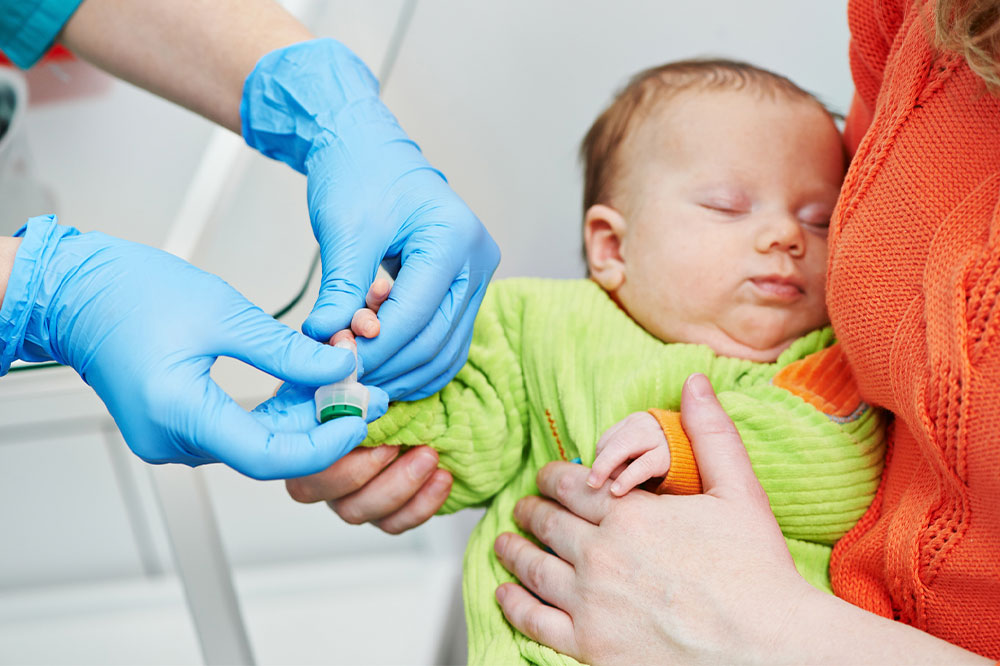
Important things to know about a hearing test for newborns
The newborn hearing screening is a routine health checkup recommended by doctors soon after the child is born to help check their hearing ability. The child can only develop language and speech skills if they can hear properly. A proper diagnosis is imperative soon after birth if a child has congenital hearing loss. Early detection can allow the health team to take necessary steps to improve your child’s language and foster emotional and social development.
Types of hearing tests for newborns
As a part of the hearing evaluation, the healthcare provider will conduct a complete health exam and history. Beyond this, there are several kinds of hearing tests. For example, some tests work for people regardless of age, while others are based on your child’s comprehension level and age.
Newborn hearing screening
Broadly, there are two kinds of newborn hearing screening methods. They could be used in combination or independently. These are:
Auditory Brainstem Response (ABR)
This test involves attaching electrodes with adhesive to the baby’s scalp and playing clicking sounds through small earphones in their ears while they sleep. This measures the child’s response to the sound, and the test is painless and takes only a few minutes.
Evoked Otoacoustic Emissions (EOAE)
In this test, the doctors insert a flexible plug into the child’s year, and the sounds travel via this plug. It’s painless and takes a few minutes. However, the doctors undertake this newborn hearing screening when the baby sleeps.
Behavioral audiometry
It is a screening test to watch the behavior response of the child to some sounds. Further testing may be needed in this regard.
Under these tests, if the doctor finds that your child has hearing loss, they will undertake further testing. Ideally, babies with hearing loss must be identified in the initial three months. Consequently, the doctors will begin the treatment before the child turns six months old, a crucial period for language and speech development.
Why are hearing tests for newborns important?
It is one of the most crucial steps towards understanding if the child is challenging hearing or deaf. Without hearing tests, it is tricky to comprehend when hearing changes in the initial years or months of the baby’s life. Sometimes, the child may respond to noise by turning their head towards the sound or startling. But this does not necessarily imply they can listen to all the sounds or everything you say. Kids who are hard of hearing or deaf may pick some sounds but not enough to understand the spoken language.
What should you know about the newborn hearing screening?
Here are some crucial things you must know about hearing tests for newborns:
- The process is painless, safe, and quick.
- It does not take over 10 minutes
- Newborns undergo screening once or twice.
- Typically, babies sleep through the test, but it can influence the outcome when the baby is restless or noisy.
- You will get the result before leaving the hospital.
What if the newborn does not clear the hearing screening?
If the baby doesn’t pass the initial screening, the doctor will recommend a follow-up test in the next few weeks or days after leaving the birthing hospital. It’s an essential step toward determining whether the baby has hearing loss. If the baby doesn’t pass the follow-up test, you must fix an appointment with the audiologist for a thorough hearing test.
What if the newborn clears the hearing test?
Typically, newborns who pass the screening have normal hearing. But some babies may hear adequately to clear the screening, but their hearing could be better. Since it is a screening and not a diagnostic test, it cannot 100% detect whether your child has hearing loss. Moreover, some babies may pass this test at birth but might lose their hearing ability from an illness, genetic reasons, or ongoing treatment. Such loss may occur gradually or suddenly. Because of all these factors, it is quintessential that even if the newborn clears the screening, you must speak to the pediatrician, who can refer you to an audiologist for a detailed hearing test if you have any concerns regarding your child’s hearing.




